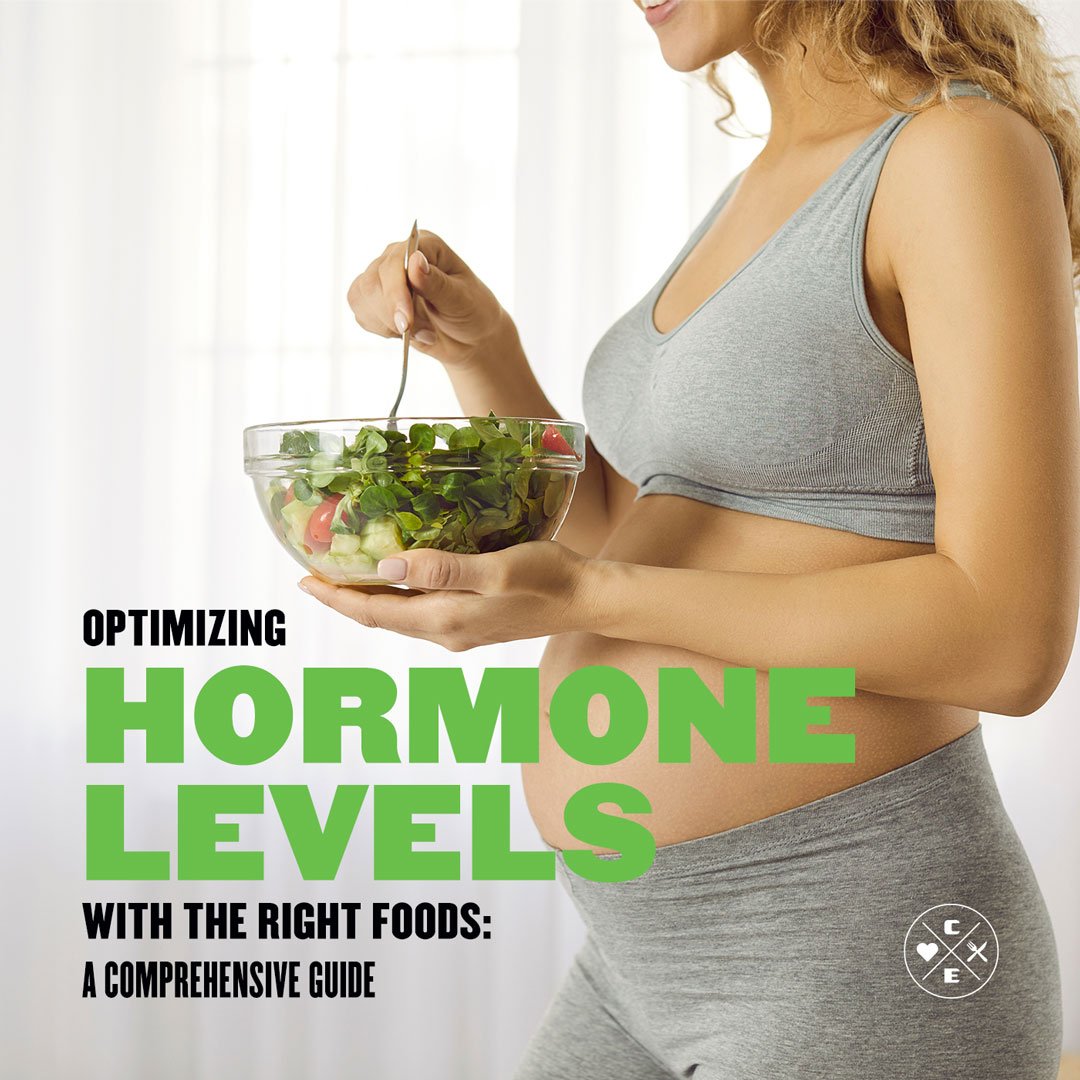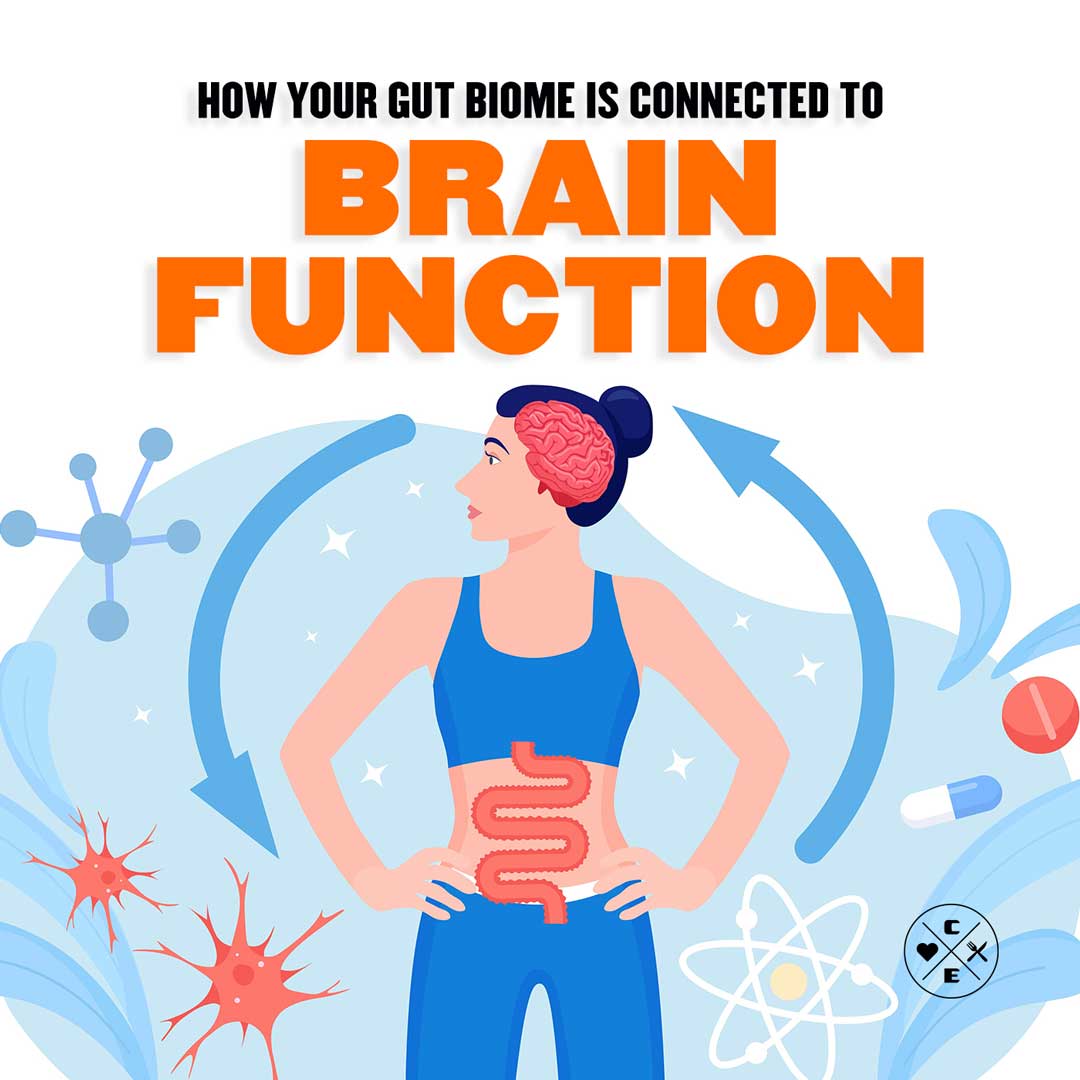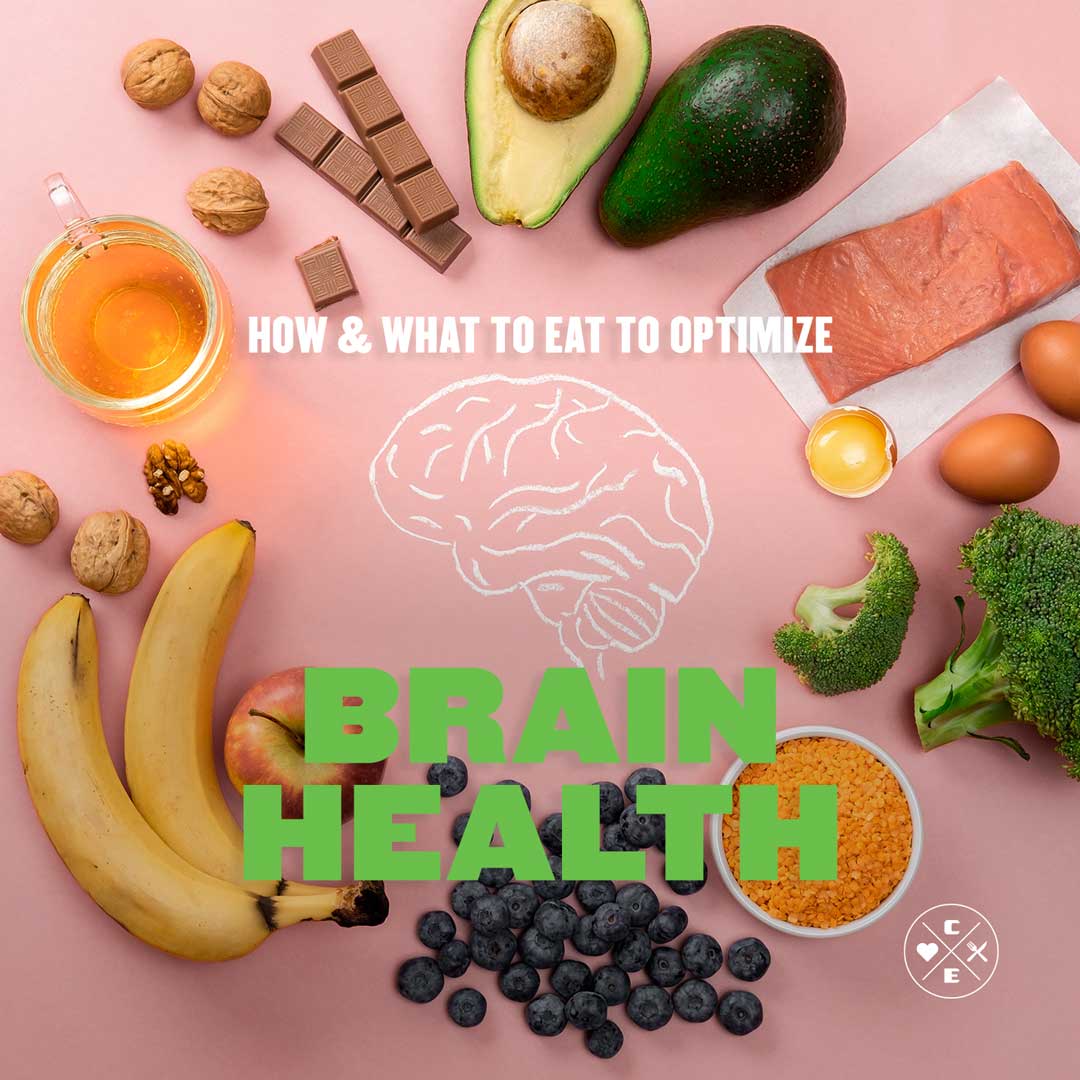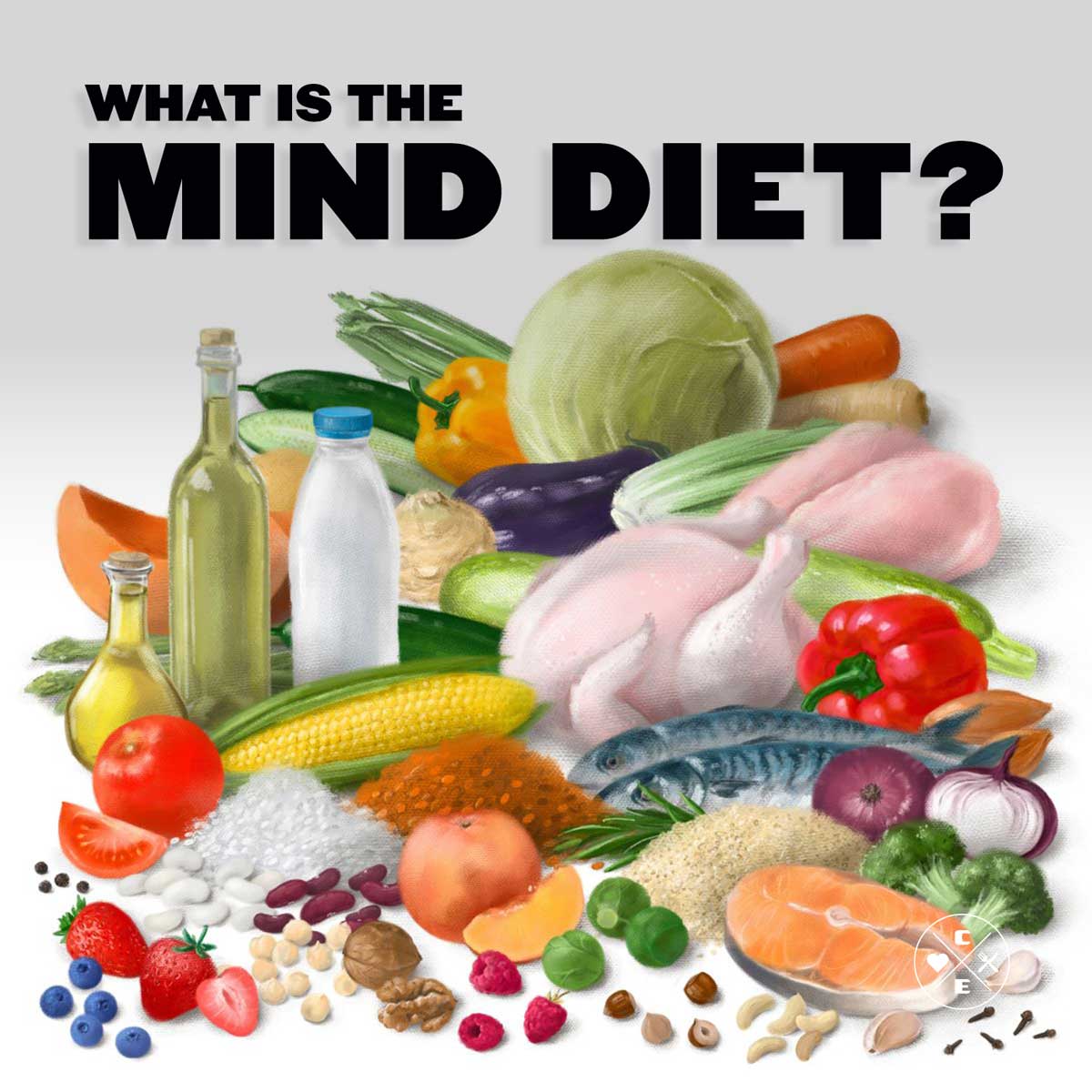
Optimizing Hormone Levels with the Right Foods: A Comprehensive Guide
Dorothy M. Shirnyl, RND
Mental Health
12 minute read
We all know that feeling - tired, irritable, maybe even a bit foggy-headed. While we often blame stress or lack of sleep, sometimes the culprit might be something less obvious: our hormones. These tiny chemical messengers play a HUGE role in how we feel and function, affecting everything from our energy levels and moods to our weight and reproductive health.
But what if we told you that the foods you eat could be a powerful tool for keeping those hormones in balance? That's right, your diet can either be your hormones' best friend or their worst enemy. While various factors can disrupt this delicate balance, your diet plays a surprisingly significant role. The foods you choose can either support or hinder your hormone production and regulation.
In this article, we are going to tackle the following:
Hormones and Their Functions
Hormones act as powerful communicators, orchestrating a symphony of functions that keep us alive and thriving. Think of them as tiny chemical messengers, traveling through the bloodstream to deliver instructions to various cells and organs. These instructions regulate everything from our metabolism and growth to our mood and reproductive health.
Key Hormones and Their Impact on Your Well-being
Let's meet some of the star players in this hormonal orchestra:
1. Insulin (The Sugar Sheriff)
Produced by the pancreas, insulin is responsible for keeping our blood sugar levels in check. When we eat, insulin helps our cells absorb glucose (sugar) from the bloodstream for energy or storage. If insulin isn't working properly, it can lead to diabetes and other metabolic problems.
2. Cortisol (The Stress Responder)
This hormone, released by the adrenal glands, is our body's natural alarm system. It helps us respond to stress by increasing blood sugar, blood pressure, and suppressing the immune system.
While cortisol is essential for survival, chronic stress can lead to chronically elevated cortisol levels, which can wreak havoc on our health, from weight gain to impaired immunity.
3. Estrogen and Testosterone (The Dynamic Duo)
These sex hormones play starring roles in our reproductive health and sexual function. Estrogen, primarily produced in the ovaries, influences the menstrual cycle, bone health, and even cholesterol levels. Testosterone, mainly produced in the testes, is crucial for muscle mass, bone density, and sex drive in both men and women.
4. Thyroid Hormones (The Metabolic Maestro)
Produced by the thyroid gland, these hormones control our metabolism – the rate at which our bodies burn energy. They also influence growth, development, and body temperature.
An underactive thyroid (hypothyroidism) can lead to fatigue, weight gain, and depression, while an overactive thyroid (hyperthyroidism) can cause anxiety, weight loss, and heart palpitations.
Why You Should Be Concerned About Hormonal Balance Matters?
Think of your hormones like a finely tuned orchestra. When they're in harmony, everything works smoothly. But when one instrument is out of tune, the whole performance suffers.
Hormonal imbalances can manifest in a variety of ways, impacting our physical, mental, and emotional health:
- Weight fluctuations
- Mood swings, anxiety, or depression
- Fatigue and low energy
- Sleep problems
- Fertility issues
- Increased risk of chronic diseases
The good news is that we have more control over our hormones than we might think. By making healthy lifestyle choices, especially when it comes to our diet, we can support hormonal balance and feel our best.
The Impact of Diet on Hormone Levels: How Food Influences Your Hormones
Just like a car needs the right fuel to run smoothly, your body needs the right nutrients to keep its hormones in balance. It turns out that what you put on your plate can have a direct impact on your hormonal health.
Food as Hormone Fuel
Certain foods can act as powerful allies in supporting hormone production and activity. For example:
- Healthy Fats. Foods rich in omega-3 fatty acids, like salmon, walnuts, and flaxseeds, provide the building blocks for hormone production. They also help reduce inflammation, which can disrupt hormonal balance.
- Fiber. A diet rich in fiber from fruits, vegetables, and whole grains supports gut health, which plays a crucial role in hormone regulation. Fiber also helps maintain stable blood sugar levels, preventing the spikes and crashes that can stress your endocrine system.
- Protein. Protein provides the amino acids your body needs to synthesize hormones. Lean sources like chicken, fish, beans, and lentils are excellent choices.
- Vitamins & Minerals. Specific micronutrients are essential for hormonal health. For example, magnesium is involved in over 300 biochemical reactions, including hormone production, while zinc is crucial for testosterone production.
The Sugar & Processed Food Sabotage
On the flip side, some foods can wreak havoc on your hormones:
- Processed Foods. These often contain unhealthy fats, added sugars, and artificial ingredients that can disrupt hormonal balance and contribute to inflammation.
- Sugar. High sugar intake can lead to insulin resistance, a condition where your body's cells become less responsive to insulin, the hormone responsible for regulating blood sugar. This can lead to a cascade of hormonal imbalances and increase the risk of type 2 diabetes and other health problems.
In essence, your diet is like a powerful lever that can either support or disrupt your hormonal health. By making mindful choices and prioritizing whole, nutrient-dense foods, you can help your body create and utilize hormones effectively, leading to improved overall health and well-being.
Foods That Optimize Hormone Levels
When it comes to hormonal health, remember that your body is an interconnected ecosystem. Each food choice you make has a ripple effect, influencing the delicate balance of hormones that govern your well-being. Let's explore some key food groups that can be your allies in this journey towards hormonal harmony.
Healthy Fats
The healthy fats are the bedrock upon which your hormonal house is built. Omega-3 fatty acids, found abundantly in fatty fish like salmon, mackerel, and sardines, are the VIPs here. They're not just essential building blocks for hormones; they also possess potent anti-inflammatory properties that calm the storms that can disrupt your hormonal balance.
If the thought of fish makes you wrinkle your nose, fear not! Flaxseeds, walnuts, and chia seeds offer plant-based alternatives to get your omega-3 fix.
Don’t forget avocados, olive oil, and nuts! These gems are packed with monounsaturated and polyunsaturated fats, providing the raw materials your body needs to create and regulate hormones efficiently. Avocados, in particular, contain beta-sitosterol, a plant compound that can lend a helping hand in balancing cortisol, the stress hormone that can wreak havoc on your health when it's out of control.
Protein Sources
Protein isn't just for muscle building! It provides the essential amino acids your body needs to synthesize hormones. Lean protein sources like chicken, turkey, beans, and lentils are your go-to options. Remember, hormonal health isn't a sprint; it's a marathon. So, make sure you're including a serving of protein with each meal to keep those hormone levels steady and strong.
If you're into plant-based foods, tofu, tempeh, lentils, and chickpeas are packed with protein and other nutrients that support hormonal balance.
Fruits and Vegetables
The vibrant colors of fruits and vegetables offer a wealth of vitamins, minerals, and antioxidants that support overall health and balance. Cruciferous vegetables like broccoli, kale, and Brussels sprouts are particularly noteworthy, containing compounds that help your liver metabolize estrogen effectively. This is especially crucial for women navigating the hormonal fluctuations of menstruation, pregnancy, or menopause.
Then, we have the antioxidant rich berries, oranges, and other colorful fruits. These gems fight inflammation, a silent disruptor of hormonal balance.
Whole Grains
Whole grains like quinoa, brown rice, and oats provide complex carbohydrates that release energy slowly, preventing the blood sugar roller coaster that can mess on your hormones. By choosing whole grains over refined carbohydrates, you're supporting stable blood sugar levels and, in turn, a more balanced endocrine system.
Herbs and Spices
Beyond adding zest to your meals, herbs and spices like turmeric, ginger, and cinnamon boast anti-inflammatory properties that can help soothe your body and support hormonal balance. So, don't be shy with the spice rack! Experiment with different flavors and reap the potential benefits for your hormones and overall health.
Remember, food is more than just sustenance. It's a powerful tool for nurturing your body and mind. By prioritizing these hormone-friendly foods, you're taking a proactive step towards achieving hormonal harmony and unlocking your full potential for health and happiness.
Foods to Limit or Avoid for Hormonal Balance
While certain foods nourish and support your hormonal health, others can act like little gremlins, sabotaging on your delicate hormonal balance. Let's shine a light on some of the usual suspects:
Processed Foods and Added Sugars
Processed foods, laden with unhealthy fats, added sugars, and artificial ingredients, are like a wrecking ball to your hormonal health.
They can trigger inflammation, disrupt insulin sensitivity, and contribute to weight gain – all of which can throw your hormones out of whack.
Sugar, in particular, deserves a special mention. Excessive sugar intake can lead to insulin resistance, a condition where your body's cells become less responsive to insulin. This can create a domino effect, impacting other hormones and increasing your risk of diabetes and other health problems. So, keep those sugary drinks, pastries, and candies to a minimum.
Caffeine and Alcohol
While a morning cup of coffee or an occasional glass of wine might seem harmless, excessive caffeine and alcohol intake can interfere with your hormonal balance. Caffeine can disrupt your sleep-wake cycle and stress hormones, while alcohol can affect estrogen metabolism and contribute to various health issues. Moderation is key here.
Trans Fats and Refined Carbohydrates
Trans fats, found in some processed foods and fried foods, are known to increase inflammation and negatively impact hormonal health.
Similarly, refined carbohydrates like white bread and pastries can cause blood sugar spikes and crashes, stressing your endocrine system and contributing to hormonal imbalances.
Lifestyle Factors Supporting Hormonal Health
Eating a nourishing diet is undeniably crucial for maintaining hormonal harmony, but it's not the sole player in this intricate symphony. Beyond food, your lifestyle choices play a pivotal role in influencing your hormonal health. Let's explore these key lifestyle factors and how they can empower you to achieve optimal hormonal balance.
Move Your Body
Regular physical activity isn't just about staying fit; it's a potent elixir for your endocrine system. Exercise helps regulate insulin levels, improves your body's sensitivity to hormones, and even gives those mood-boosting endorphins a nudge.
Find an activity you love, whether it's dancing, swimming, hiking, or simply taking a brisk walk, and make it a part of your regular routine.
Stress Less
Chronic stress can throw your hormones into a tailspin, particularly by elevating cortisol levels. This can disrupt sleep, contribute to weight gain, and leave you feeling frazzled and fatigued.
Stress management techniques like meditation, yoga, deep breathing, or even spending time in nature can be powerful tools to calm your nervous system and bring cortisol levels back into balance.
Rest and Replenish
Sleep is your body's time to recharge and repair, and that includes hormone regulation. Skimping on sleep can disrupt a whole host of hormones, from insulin and cortisol to growth hormone. Aim for 7-8 hours of quality sleep each night to give your body the rest it needs to maintain hormonal harmony.
Equally vital is staying hydrated. Water is essential for transporting nutrients and hormones throughout your body, and even mild dehydration can negatively impact your hormonal health. Make sure you're sipping water throughout the day to keep your body and hormones happy.
Eat Well, Live Well, Balance Your Hormones
As we've discovered, hormones play a crucial role in every aspect of our health. They're the behind-the-scenes managers, making sure everything from our energy levels to our moods are running smoothly. While things like genetics and age can influence our hormones, our diet and lifestyle choices have a major impact on keeping them in balance.
From the omega-3 packed salmon on your plate to the calming breaths you take during a yoga session, each choice you make matters. Prioritizing whole foods, staying active, managing stress, getting quality sleep, and staying hydrated all work together to create a healthy hormonal environment.
Remember, taking control of your hormonal health is an ongoing journey. By making informed choices about your diet and lifestyle, you can empower your body to find its natural balance and thrive.
Your Turn to Thrive!
Have you noticed any positive changes in your health after incorporating hormone-balancing foods into your diet? Or maybe you have some go-to recipes you'd like to share? We'd love to hear your stories and tips in the comments below!
Check out our blog for more tips on nutrition, health, and all things wellness. We'll continue to bring you evidence-based information and practical advice to support your overall well-being.
If you're feeling overwhelmed or unsure where to start, remember you don't have to navigate this journey alone. Reach out to a healthcare professional or registered dietitian. They can offer personalized guidance and support, helping you create a plan tailored to your unique needs and goals.
Start your week with a healthy meal plan!
Related Articles
How Your Gut Biome Is Connected to Brain Function
15 minute read
How and What to Eat to Optimize Brain Health?
16 minute read
The MIND Diet: Your Guide to Better Brain Health at Any Age
17 minute read



